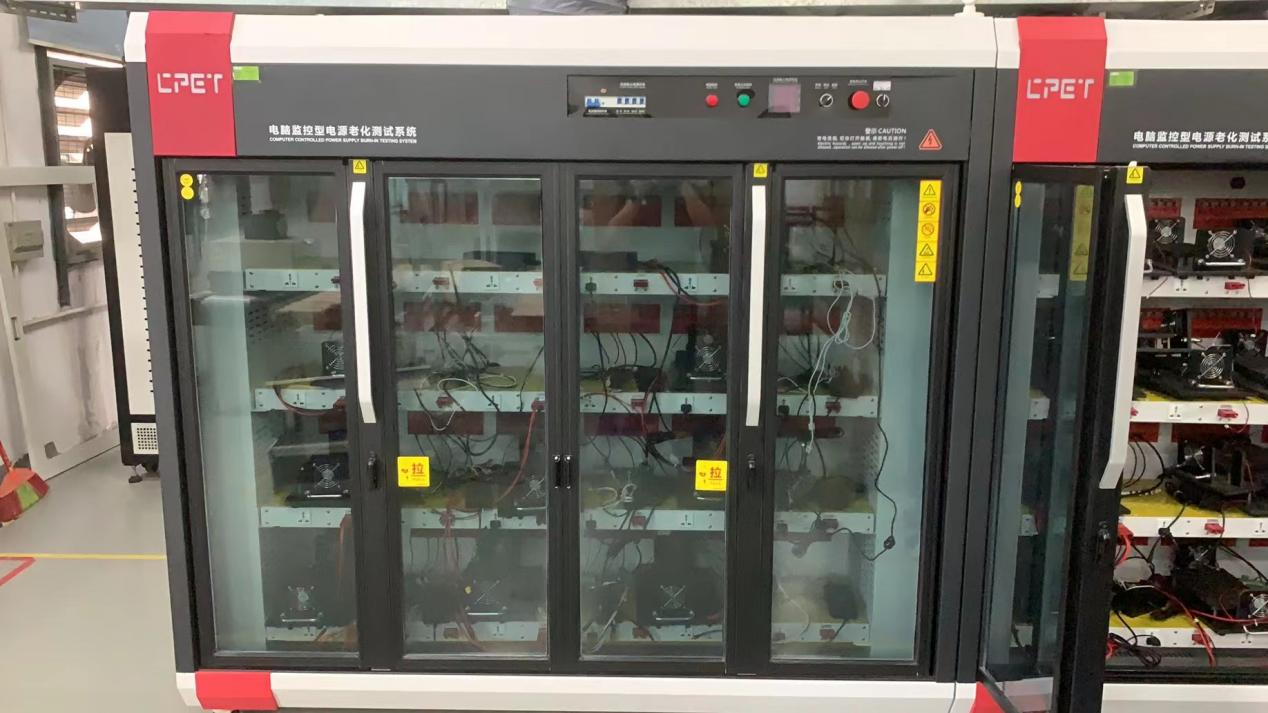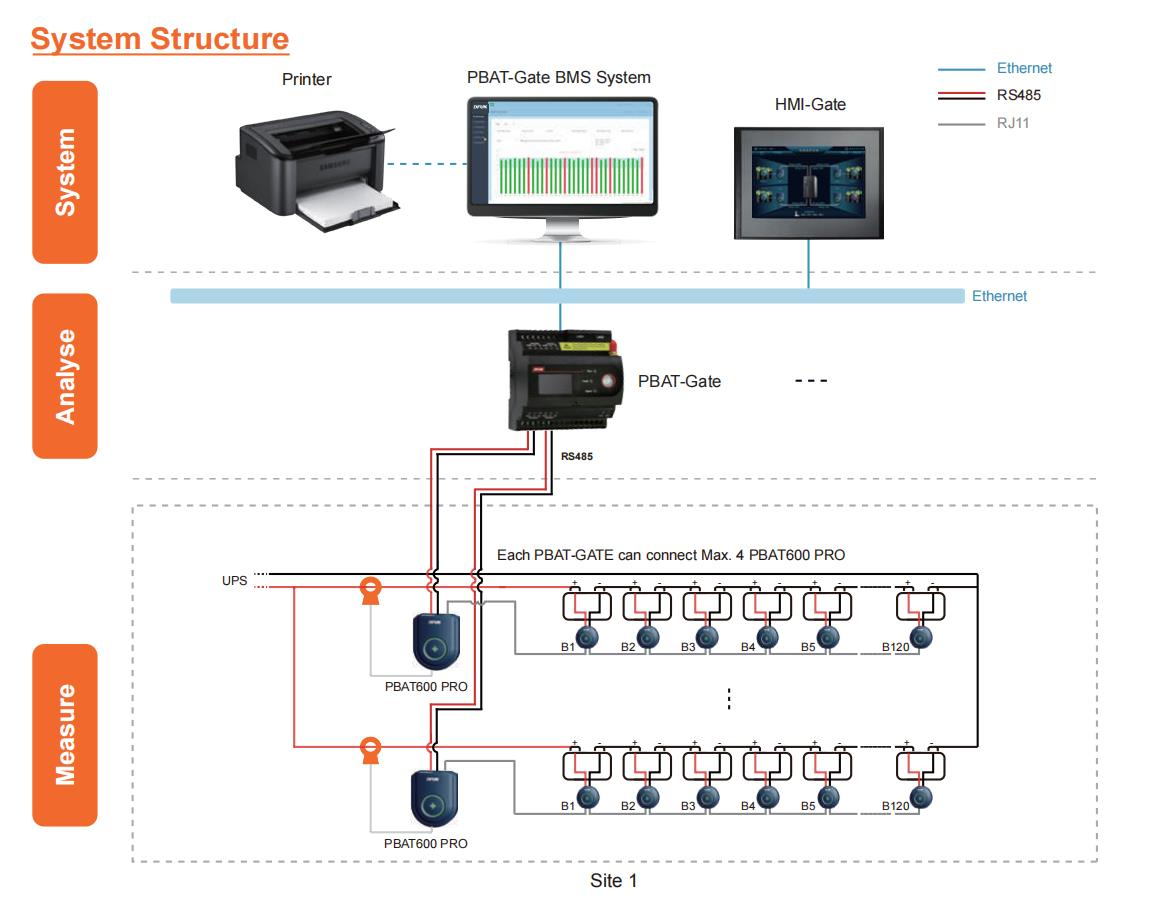A Battery Management System (BMS) is a critical component of modern battery technology, playing a pivotal role in ensuring the safe, efficient operation of batteries, and providing real-time monitoring and diagnostics. This process involves several key steps:
Monitoring Battery Parameters: BMS employs various sensors to monitor critical parameters of the battery, including voltage, current, temperature, charge state, and health status. These sensors continuously monitor the battery's condition and transmit data to the BMS controller for analysis.
Analyzing Battery Data: The BMS controller analyzes the data collected from the sensors to determine the current state and health of the battery. It also employs built-in algorithms to calculate remaining battery capacity, predict battery lifespan, estimate charging times, and other relevant information.
Controlling Charging and Discharging: Based on data analysis, the BMS controller adjusts the battery's charging and discharging processes to maintain safety and efficiency. It prevents overcharging, over-discharging, and overheating, thus reducing the risk of battery damage.
Balancing Cell Voltages: In some battery packs, voltage imbalances between individual battery cells may exist. BMS can perform voltage balancing among these cells, ensuring they charge and discharge evenly, ultimately enhancing battery performance and longevity.
Providing User Feedback: BMS not only monitors and controls the battery but also offers real-time information to users, such as performance data, remaining capacity, charging times, and battery health. This empowers users to make informed decisions regarding battery management and maintenance.
The Importance and Applications of BMS
BMS finds wide-ranging applications in various fields, and below are discussions of some key areas:
Electric Vehicles: BMS is crucial for ensuring the performance and safety of electric vehicle batteries. It monitors battery temperature, prevents over-discharge, and ensures optimal charging and discharging processes, thereby extending battery life.
Solar Energy Storage Systems: Off-grid or hybrid power systems often rely on solar energy storage systems to store excess energy generated during the day for nighttime or low-light usage. BMS helps ensure the safe operation of batteries in these systems, preventing damage and improving overall system efficiency.
Consumer Electronics: From smartphones to laptops, modern consumer electronics increasingly rely on lithium-ion batteries. BMS ensures that these devices' batteries operate efficiently, safely, and reliably during usage.
Energy Reserves: Energy reserve systems, such as backup power supplies and microgrids, use batteries to provide reliable power. BMS monitors battery states and controls the charging and discharging processes, ensuring the system remains ready for use.
Aerospace: In the aerospace industry, battery management is critical to the success of space missions. BMS ensures that batteries on spacecraft and satellites operate safely in extreme environments.
Benefits of Using BMS
Now, let's delve into the benefits of utilizing a Battery Management System (BMS):
Extending Battery Lifespan: BMS ensures batteries charge and discharge optimally, preventing overcharging and over-discharging, which extends battery life.
Enhancing Battery Performance: BMS can balance cell voltages, ensuring uniform charging among cells, thus boosting battery performance and energy efficiency.
Enhancing Safety: BMS can detect potential safety risks like overcharging, short circuits, and overheating, taking timely action to prevent accidents and safeguard users and the environment.
Providing Real-Time Monitoring and Diagnostics: BMS offers valuable insights into battery performance, such as remaining capacity, charging times, battery health, enabling users to effectively manage and maintain batteries.
Improving Efficiency: By optimizing battery performance, BMS reduces energy consumption and enhances overall system efficiency, resulting in cost savings and reduced environmental impact.
Customizable Settings: Depending on the application's requirements, BMS can be customized to meet specific battery and user needs, allowing for greater flexibility and control over battery performance.
Conclusion
A Battery Management System (BMS) is an indispensable part of modern battery technology, ensuring the safe, efficient operation of batteries and providing real-time monitoring and diagnostics. Whether in electric vehicles, solar energy storage systems, consumer electronics, or various other applications, BMS plays a pivotal role. By utilizing BMS, we can extend battery lifespan, enhance performance, improve safety, offer user feedback, and increase system efficiency. This critical technology will continue to contribute to a cleaner, more efficient, and sustainable energy future in the evolving landscape of technology.
If you're interested in learning more about our solar energy storage offerings, we encourage you to explore our product line. We offer a range of panels and battery that are designed for various applications and budgets, so you're sure to find the right solution for your needs.
Website:www.fgreenpv.com
Email:Info@fgreenpv.com
WhatsApp:+86 17311228539
Post time: Sep-03-2023














